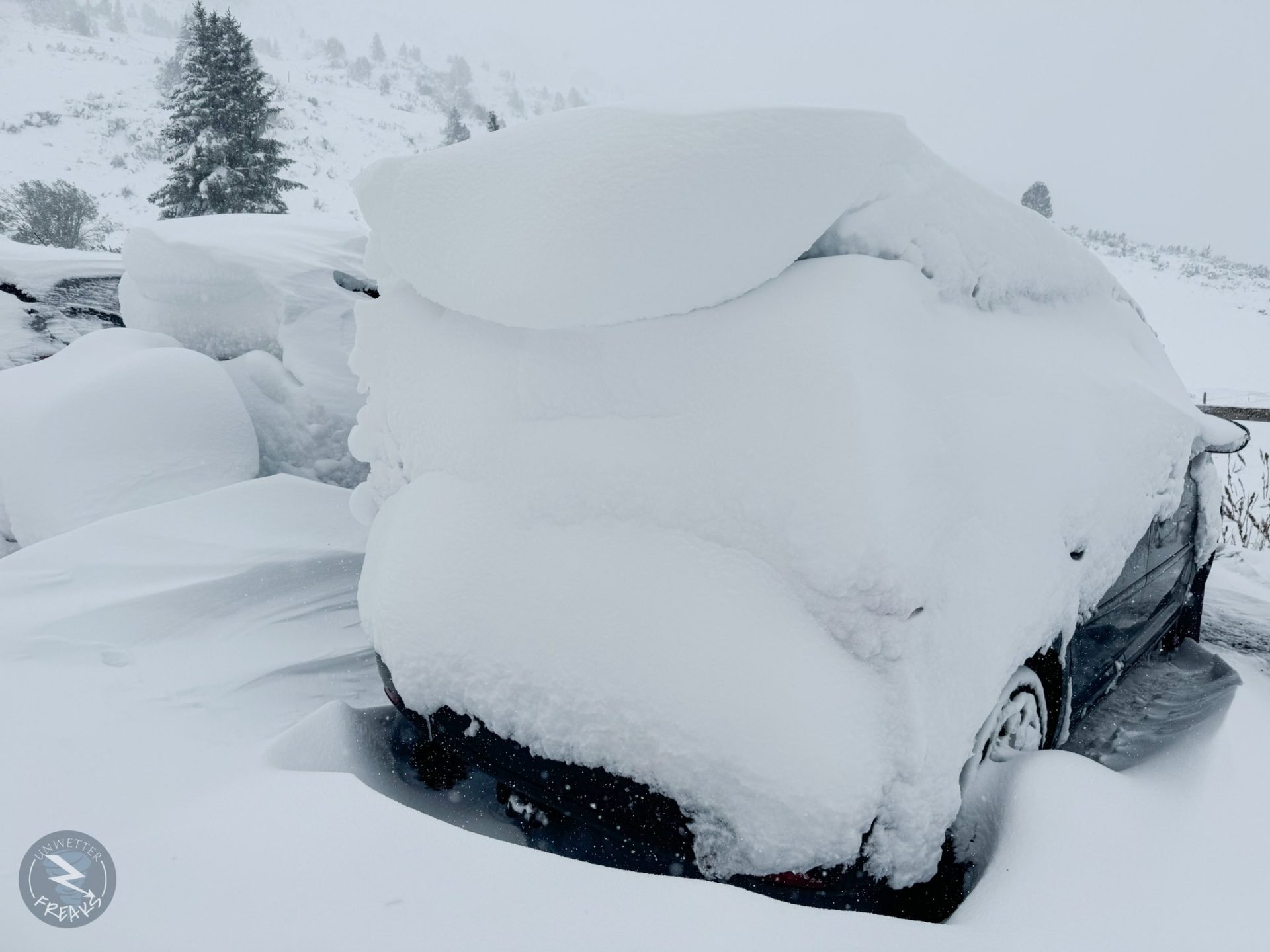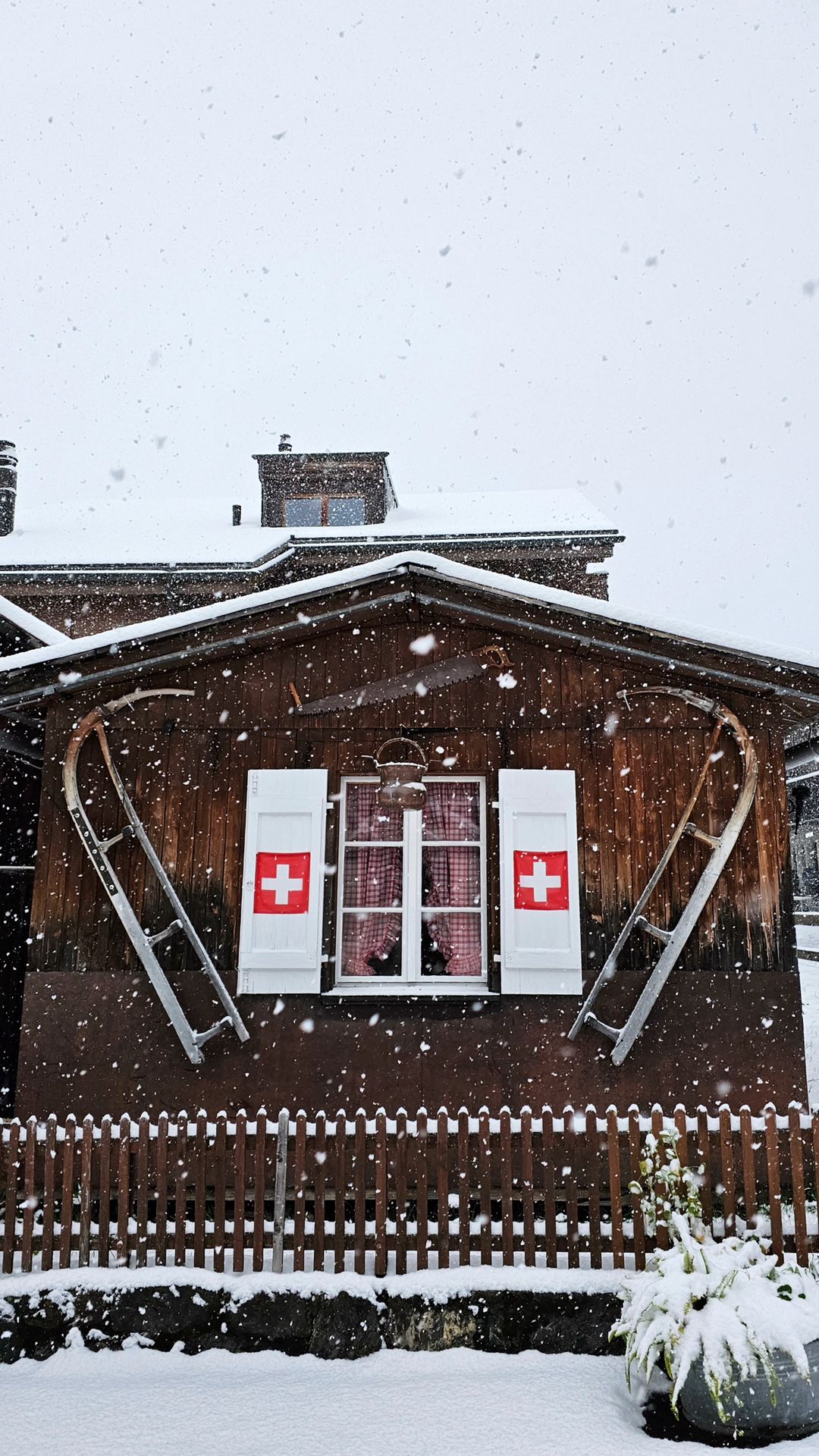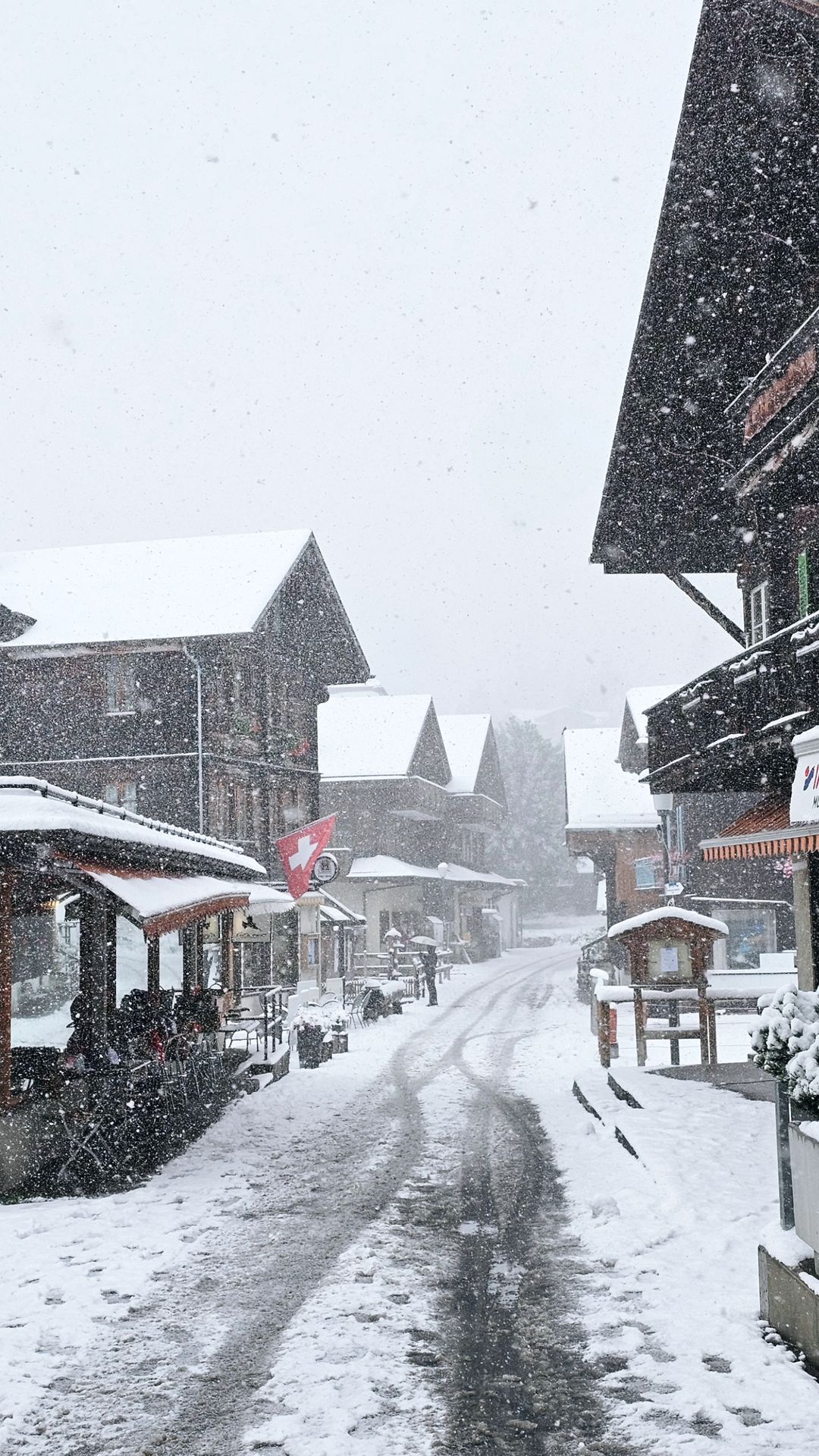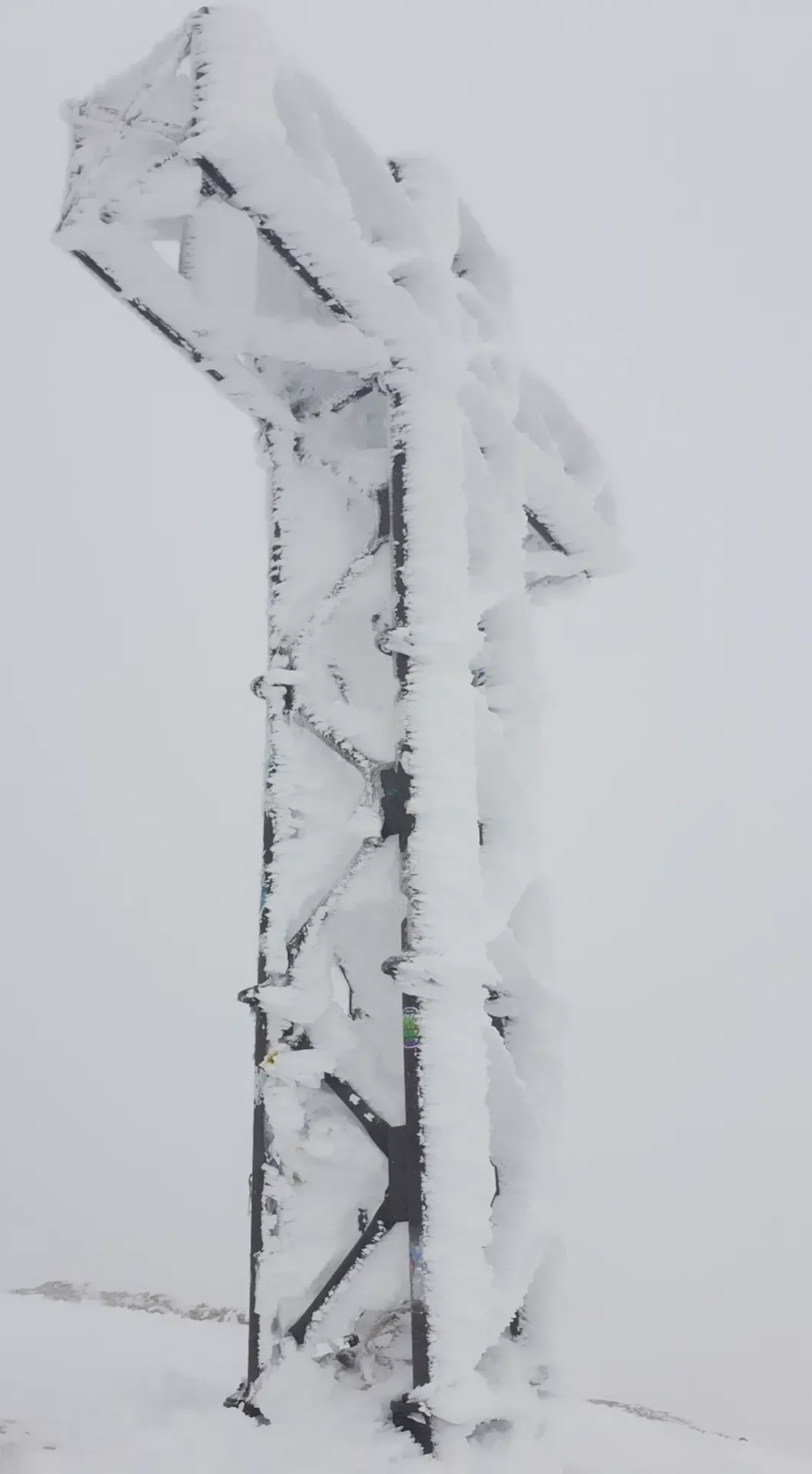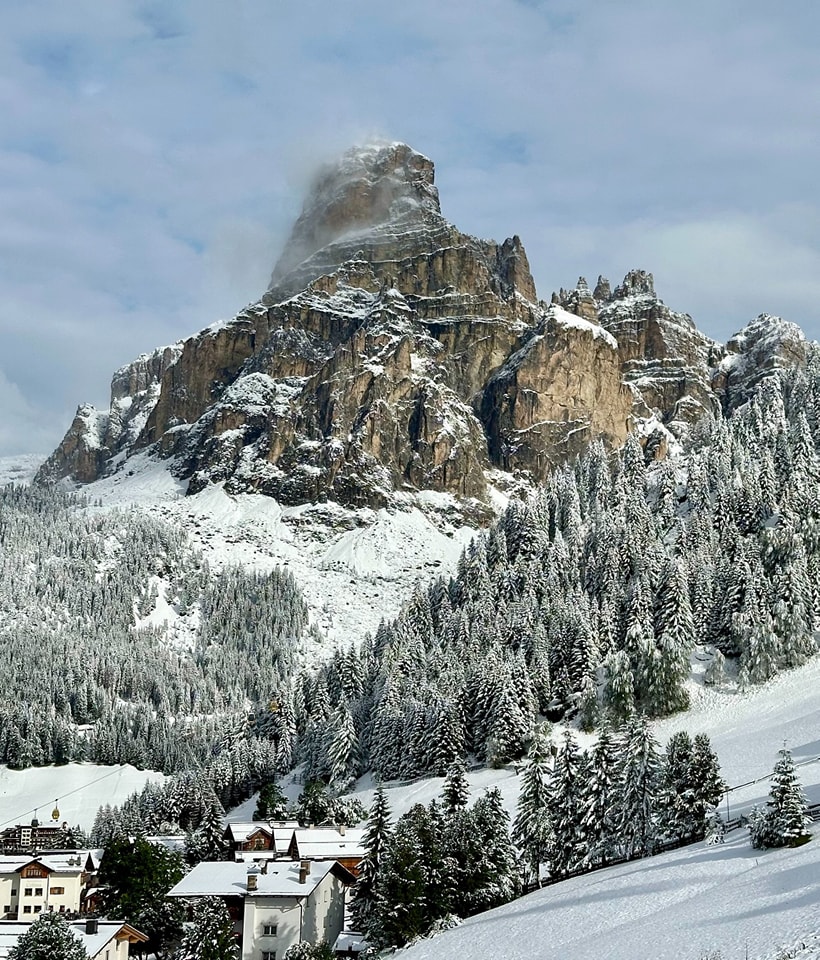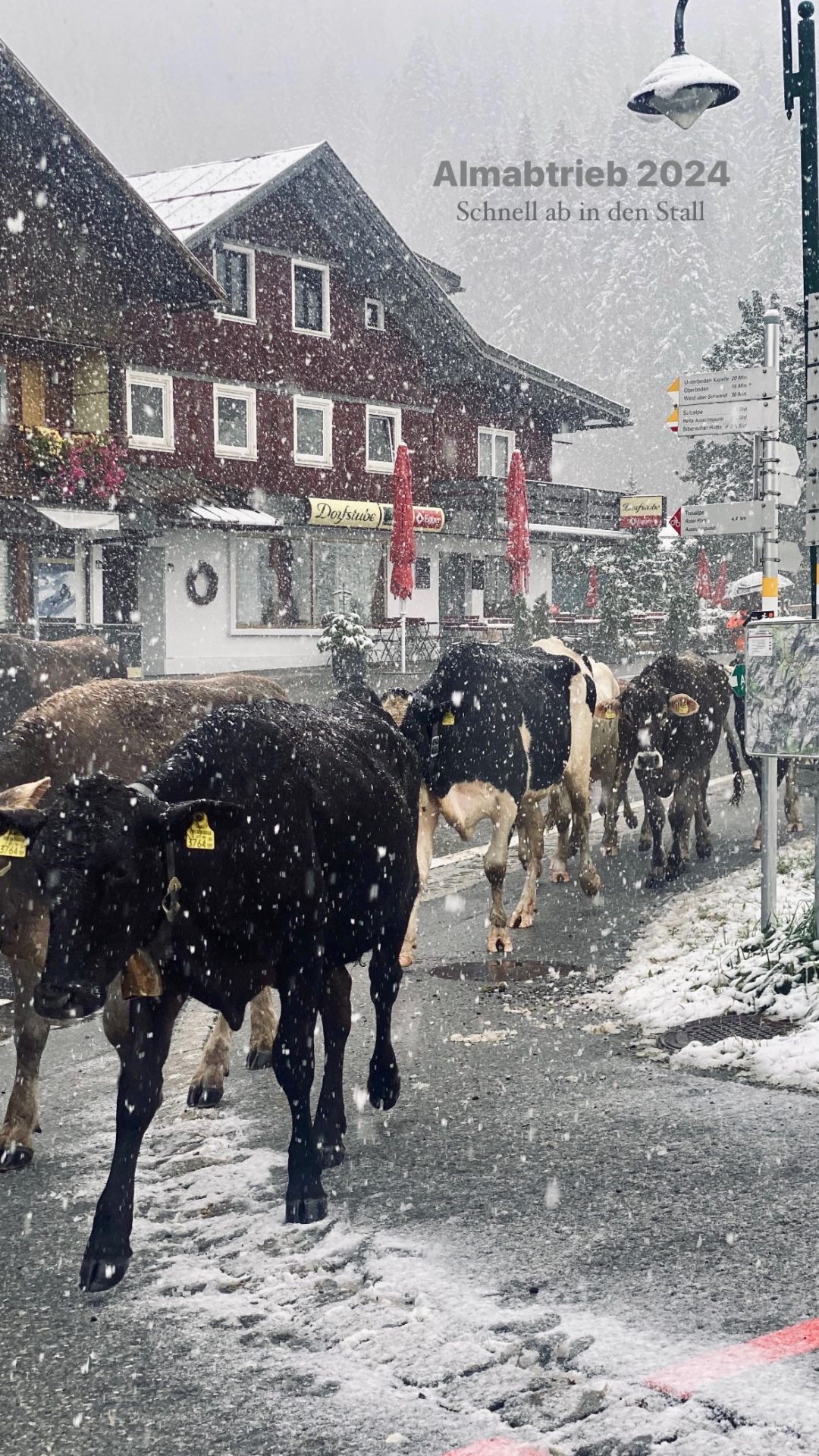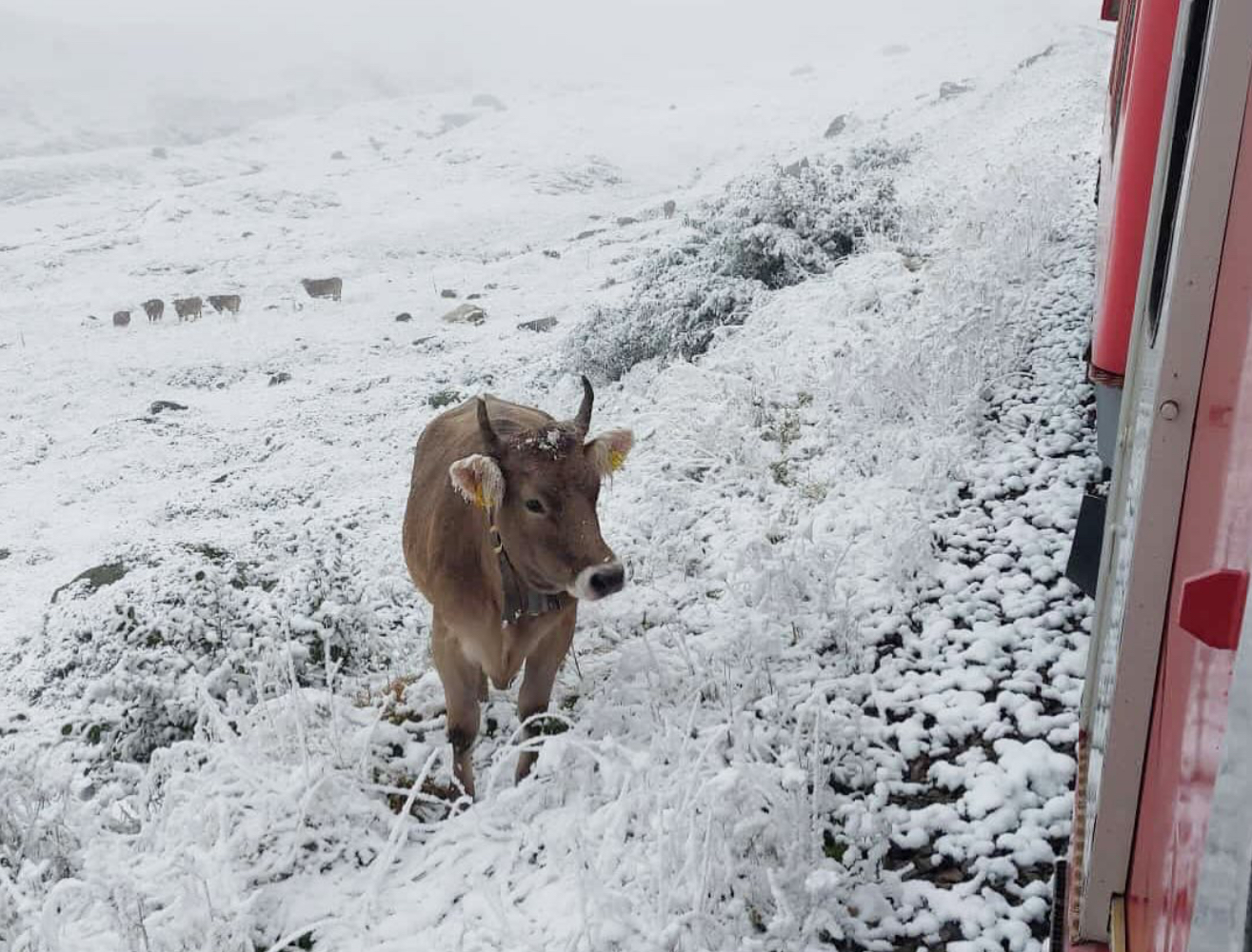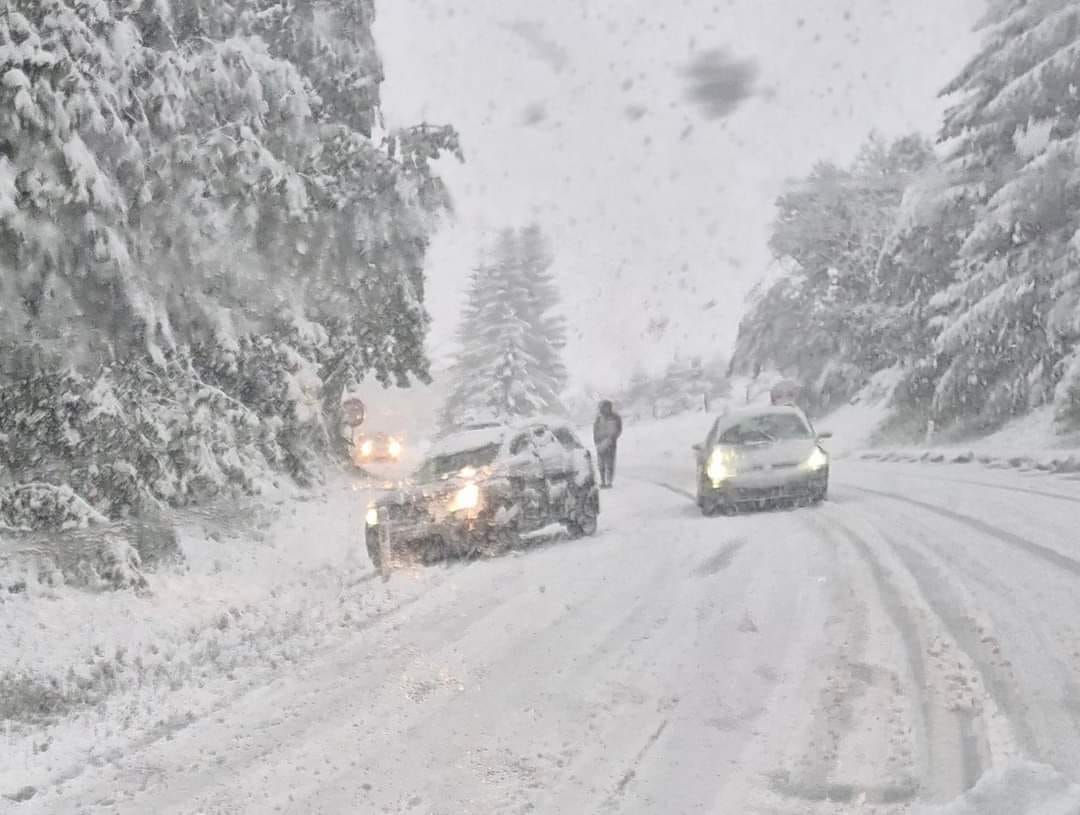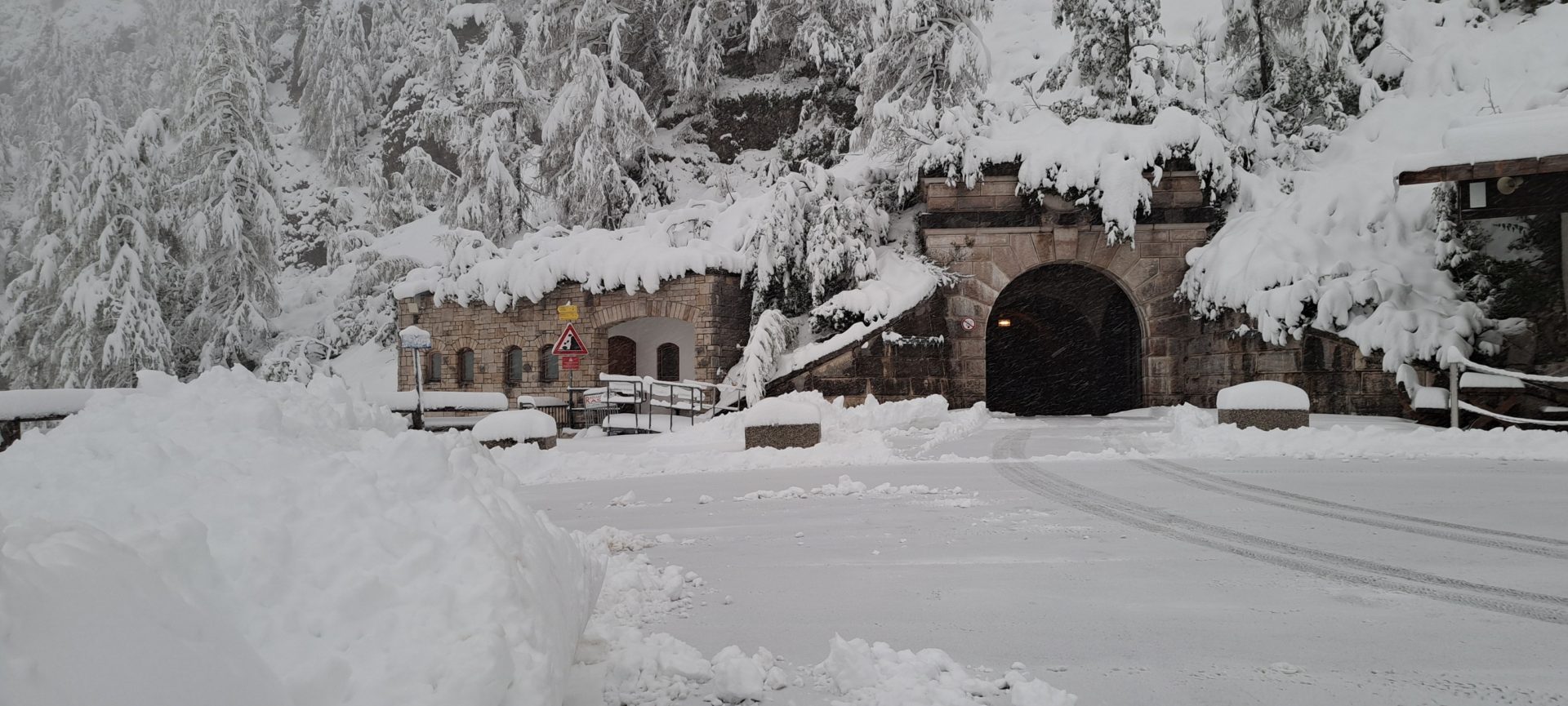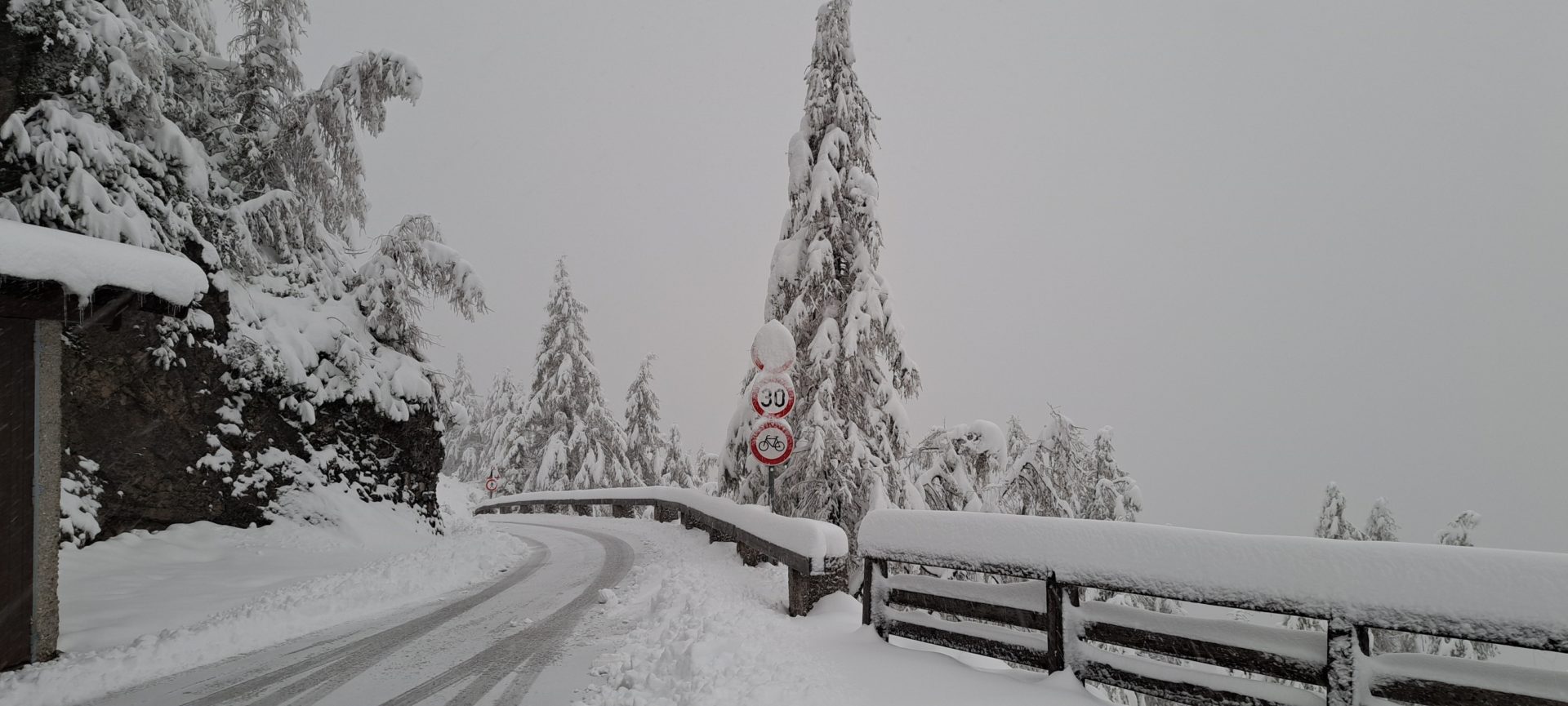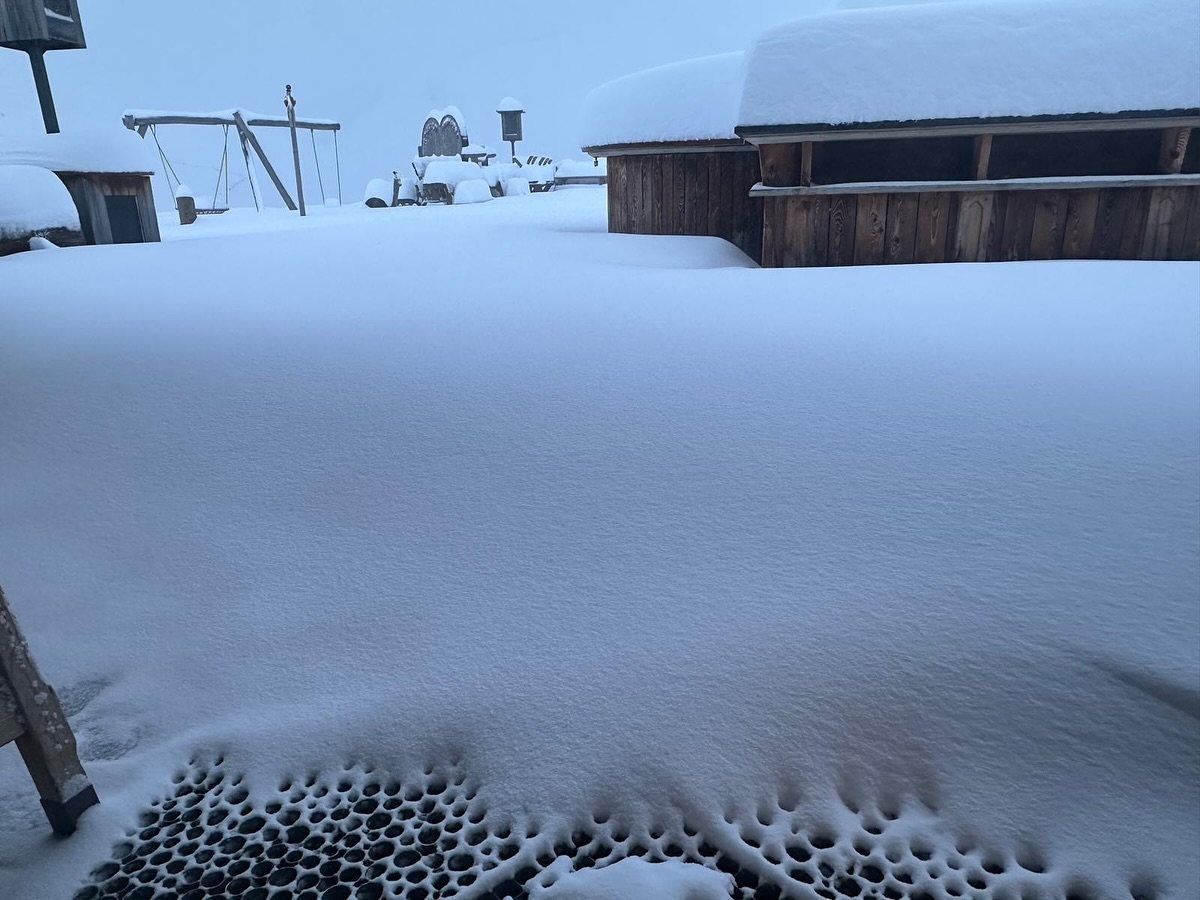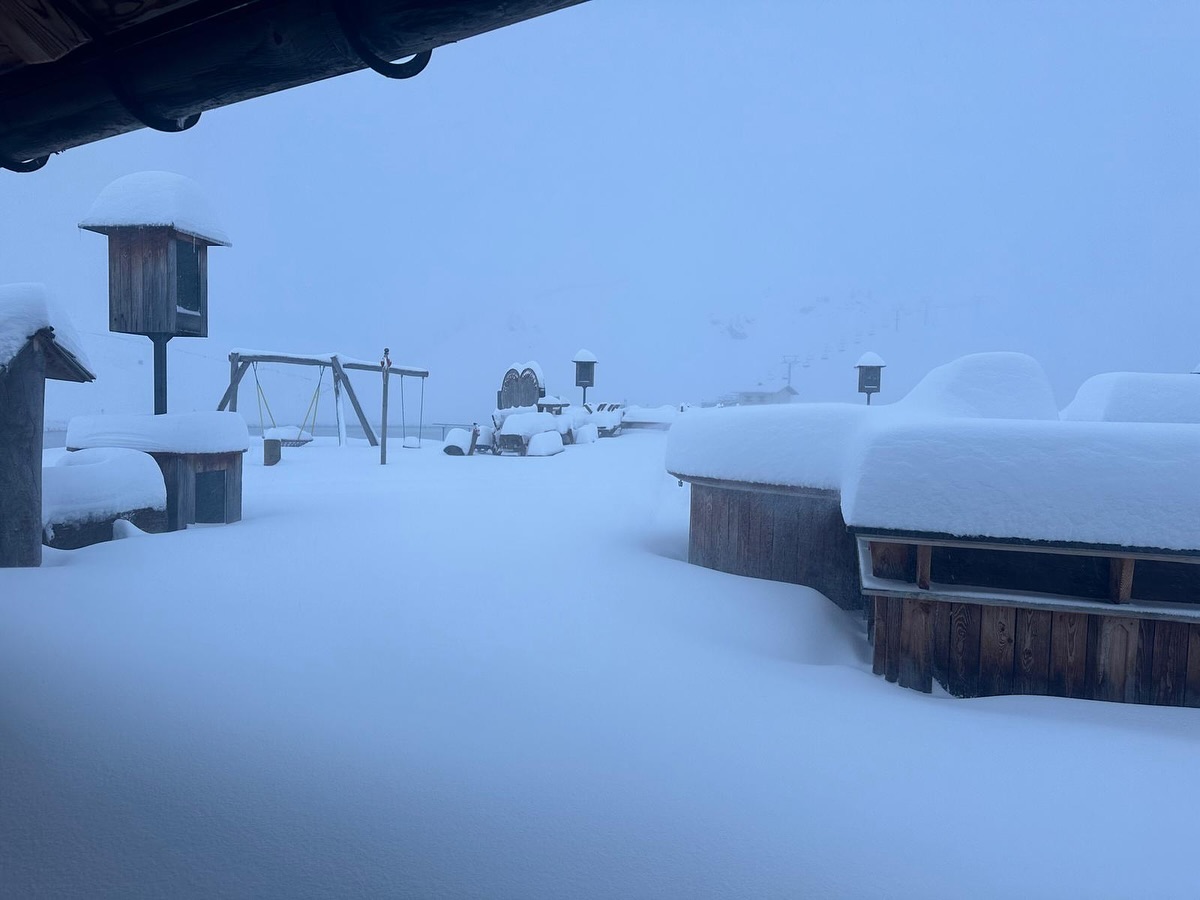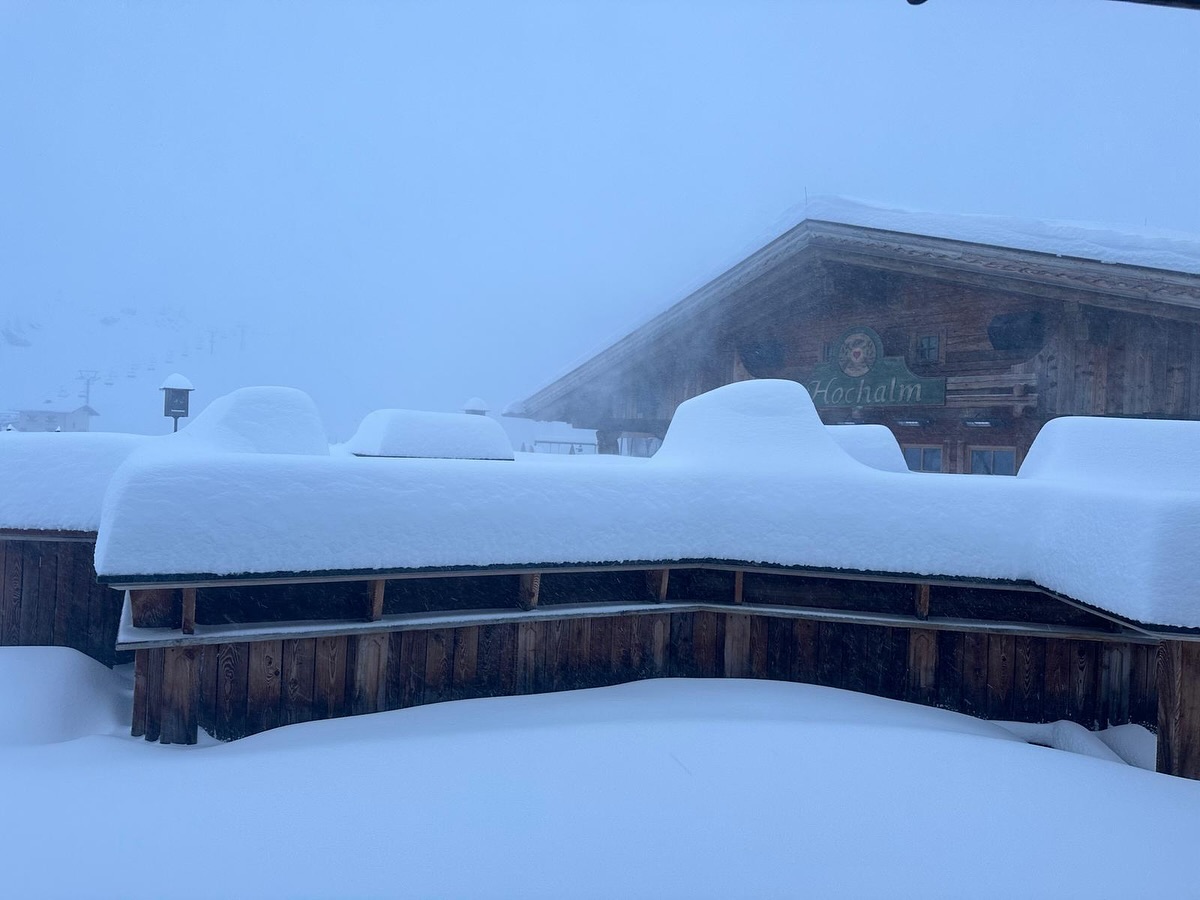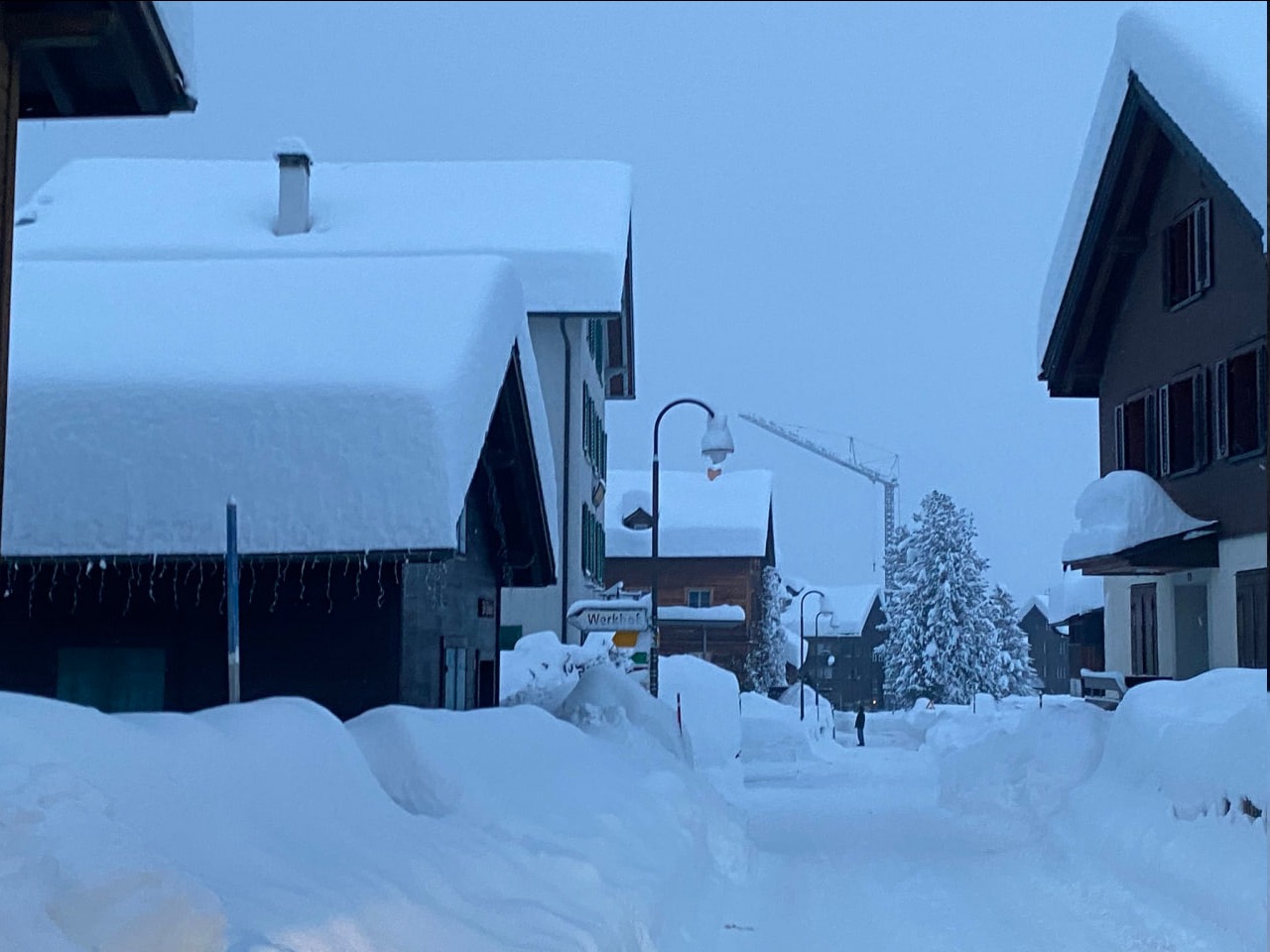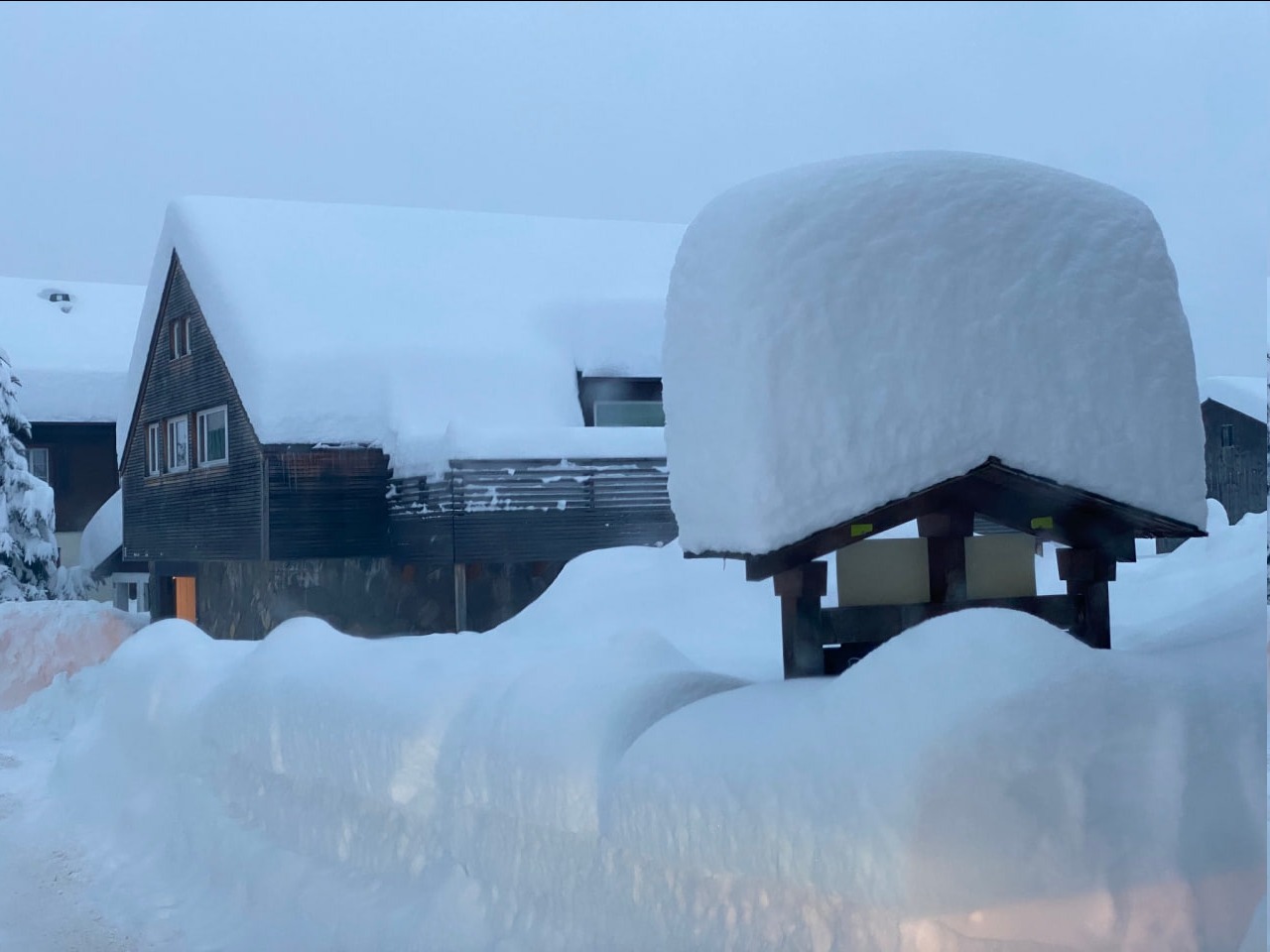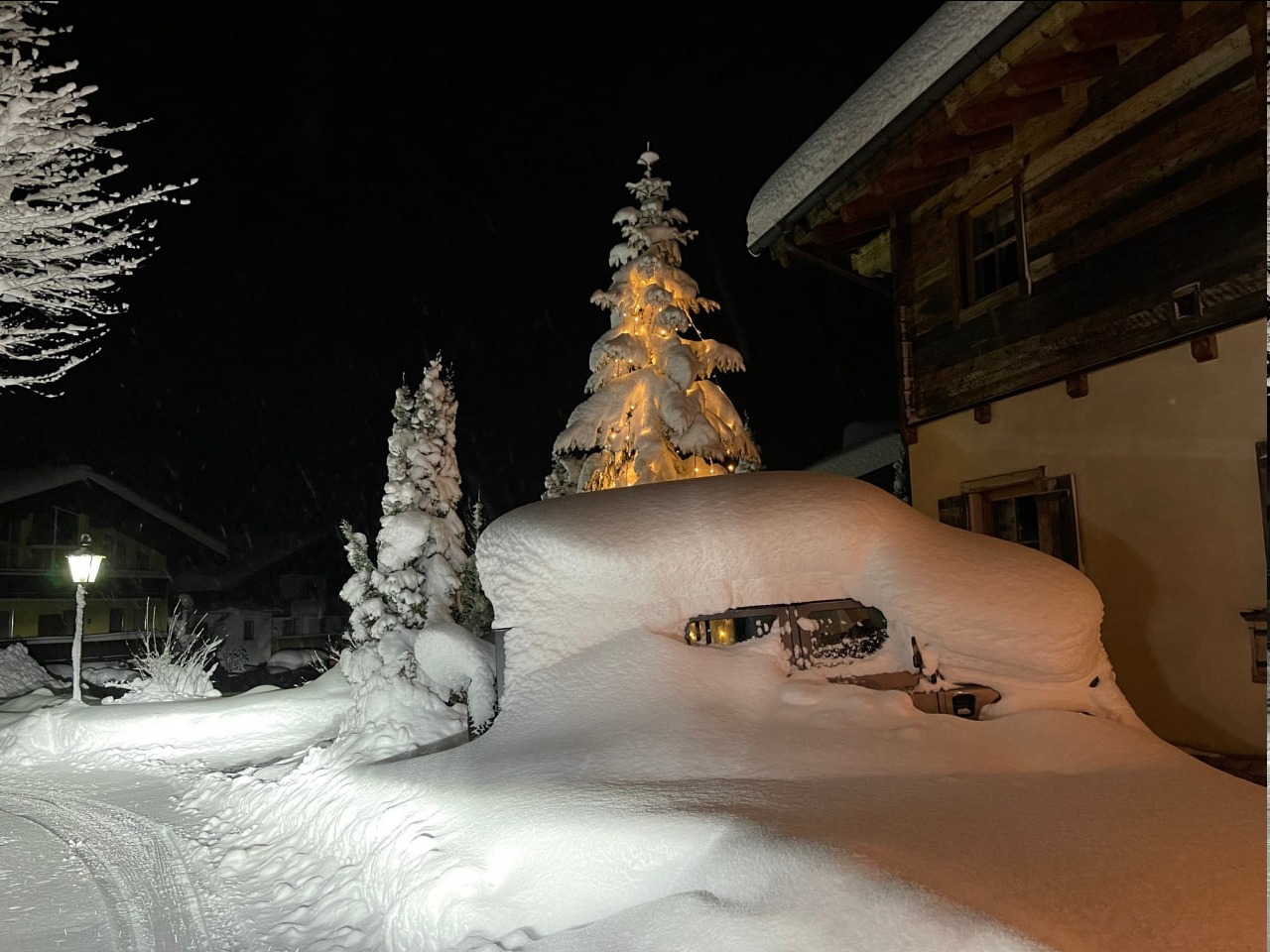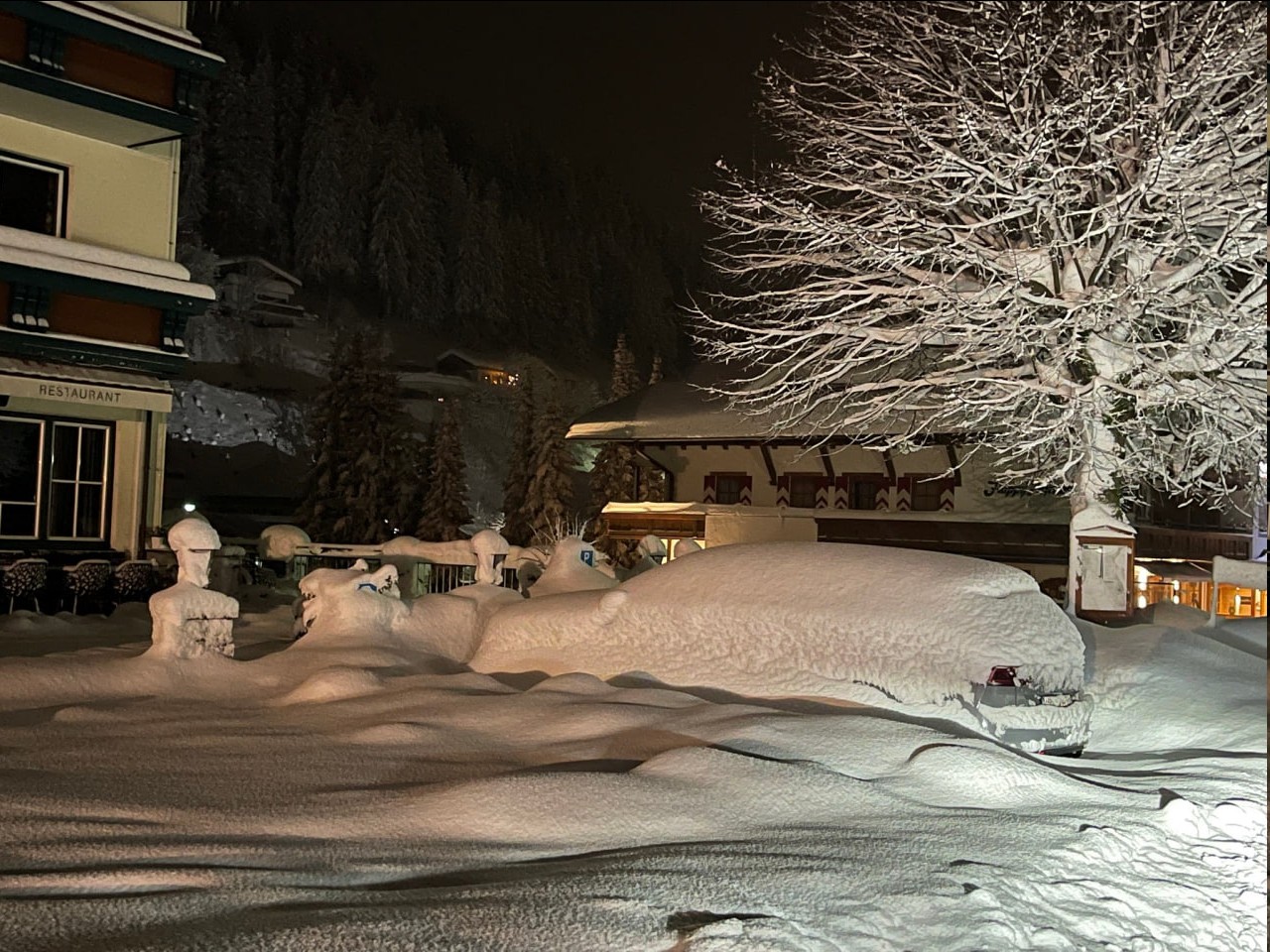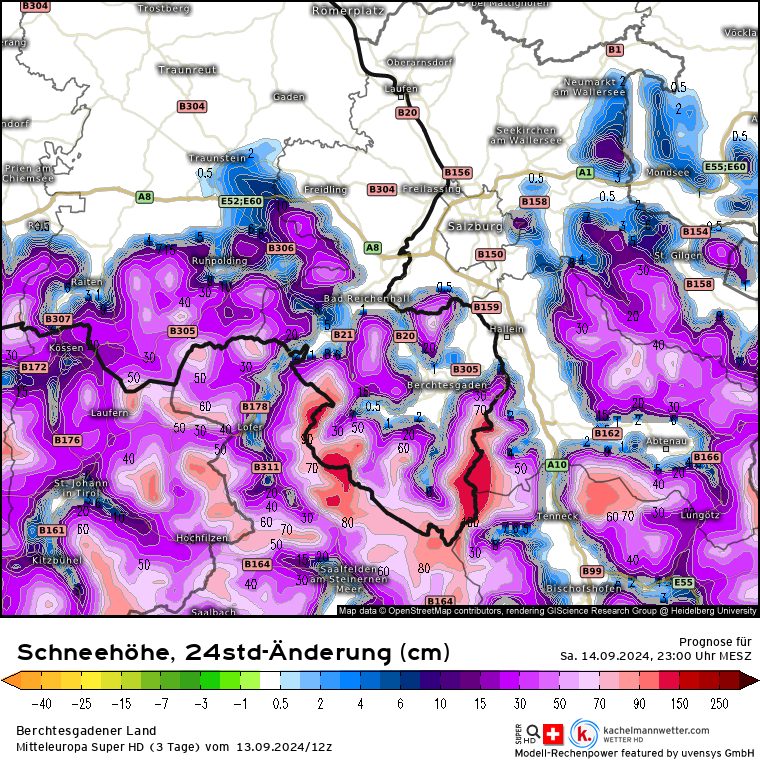
More images are coming from European ski resorts in the northeastern Alps as the low-pressure system is moving across the European Alps. While so far only about 50-75 centimeters (20-30 inches) have fallen so far, the brunt of the snowstorm is yet to come. The next 24 hours are expected to be quite dramatic as 200mm of precipitation is forecast in some regions and 400mm over the next 48 hours. It is expected that this will come down as snow above 1,000 meters (3,280 feet). Massive snow breakage, avalanches, and mudslides are to be expected in those regions. Remote mountain villages could be cut off for several days from the outside world and basic infrastructure, such as transportation, power, etc., is also under threat. Lower areas are anticipated to be at risk of flash floods. Local authorities are expecting a century flood for regions in Eastern Europe.
It is currently raining particularly heavily on the northern side of the Alps, from the Allgäu, Tyrol, Salzburger Land, and Upper Austria, and precipitation is expected to increase even more in the next few hours. Snowfall has been reported all the way down to 620 meters (2,034 feet). Road conditions are winter conditions in most alpine areas on the north side of the Alps, due to heavy snowfall and snow breakage (breaking of branches and falling trees through the snowfall). Due to the abundant rains, the soils have softened, so the roots of the trees have less support in the ground. In addition to the fact that trees are still carrying full foliage, they are therefore falling over more easily. During the course of Saturday, the precipitation is forecast to move east towards Slovakia and Czechia. There is a big risk of flash floods, mudslides, and landslides in lower areas. In addition, stormy winds can reach gusts of up to 80-100 km/h (50-62 mp/h).
It is recommended for residents to stay at home in the affected areas. Avoid unnecessary car journeys and don’t enter basements, which could flood quickly. Residents and visitors should also prepare for possible power failures. Several mountain passes had to close unexpectedly. The Klausen Pass, Susten Pass, Furka Pass, Gotthard Pass, Oberalp Pass, Nufenen Pass, and Flüela Pass in Switzerland are closed due to snow. In Austria, the Silvretta-Hochalpen Pass and the Grossglockner-Hochalpen Pass are closed. Some of these passes have hotels and visitors have been left stranded in those high alpine locations. Holiday travelers are asked to avoid these areas.
PHOTOS
